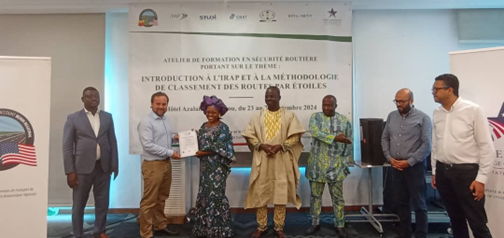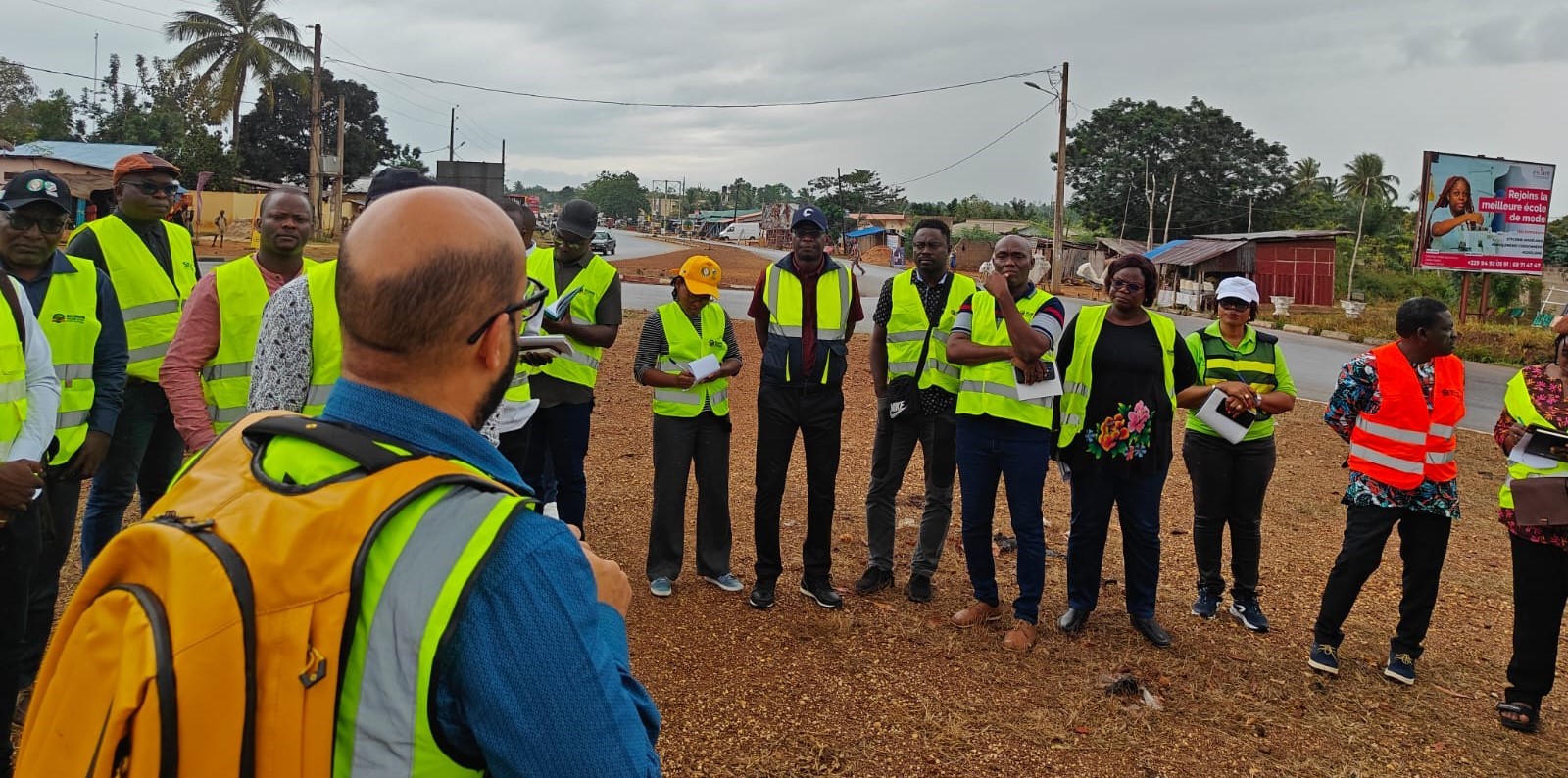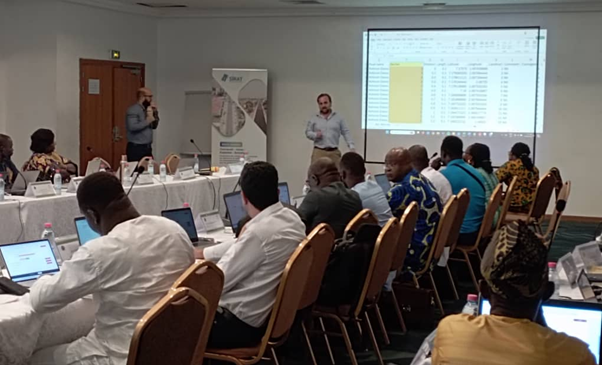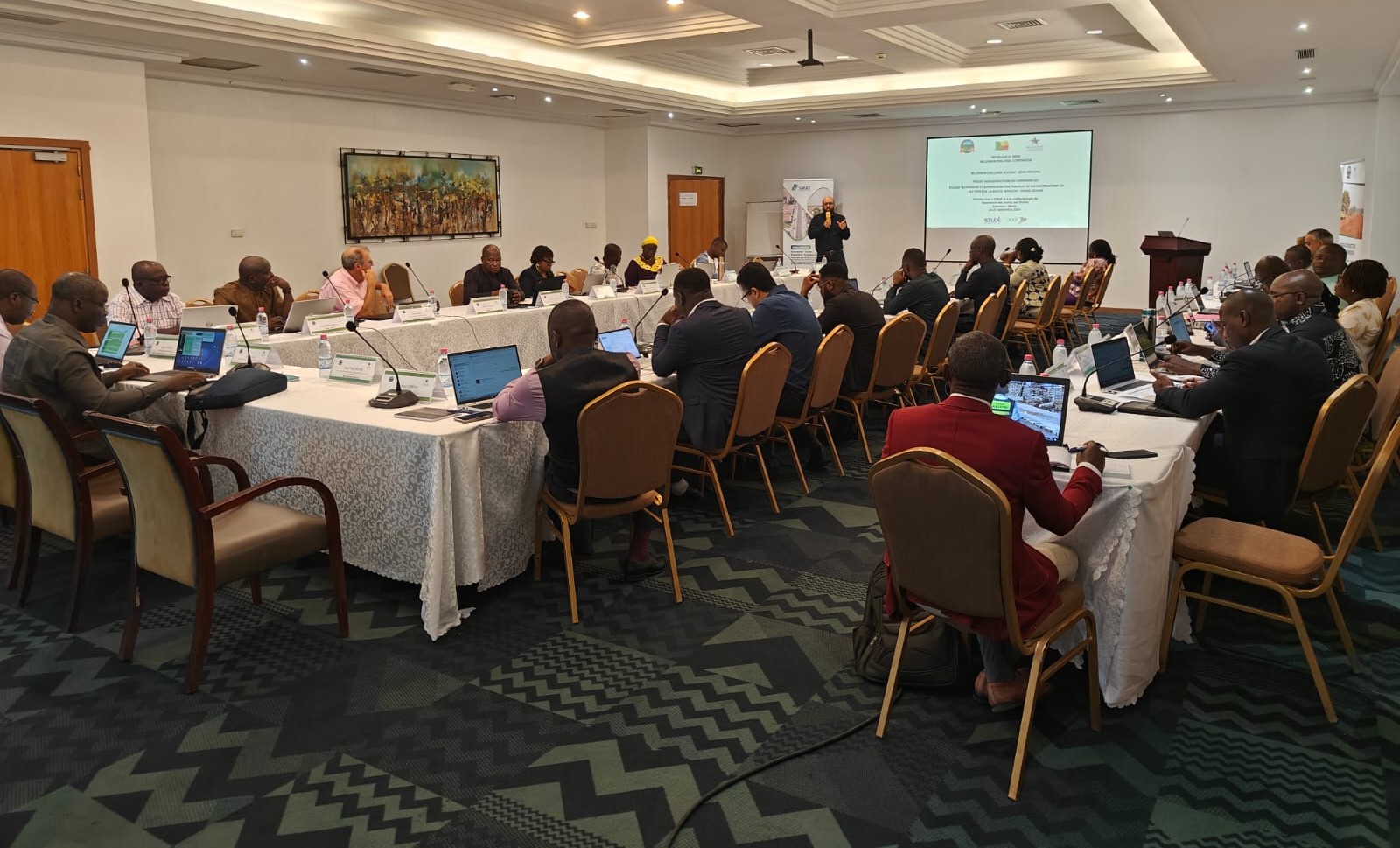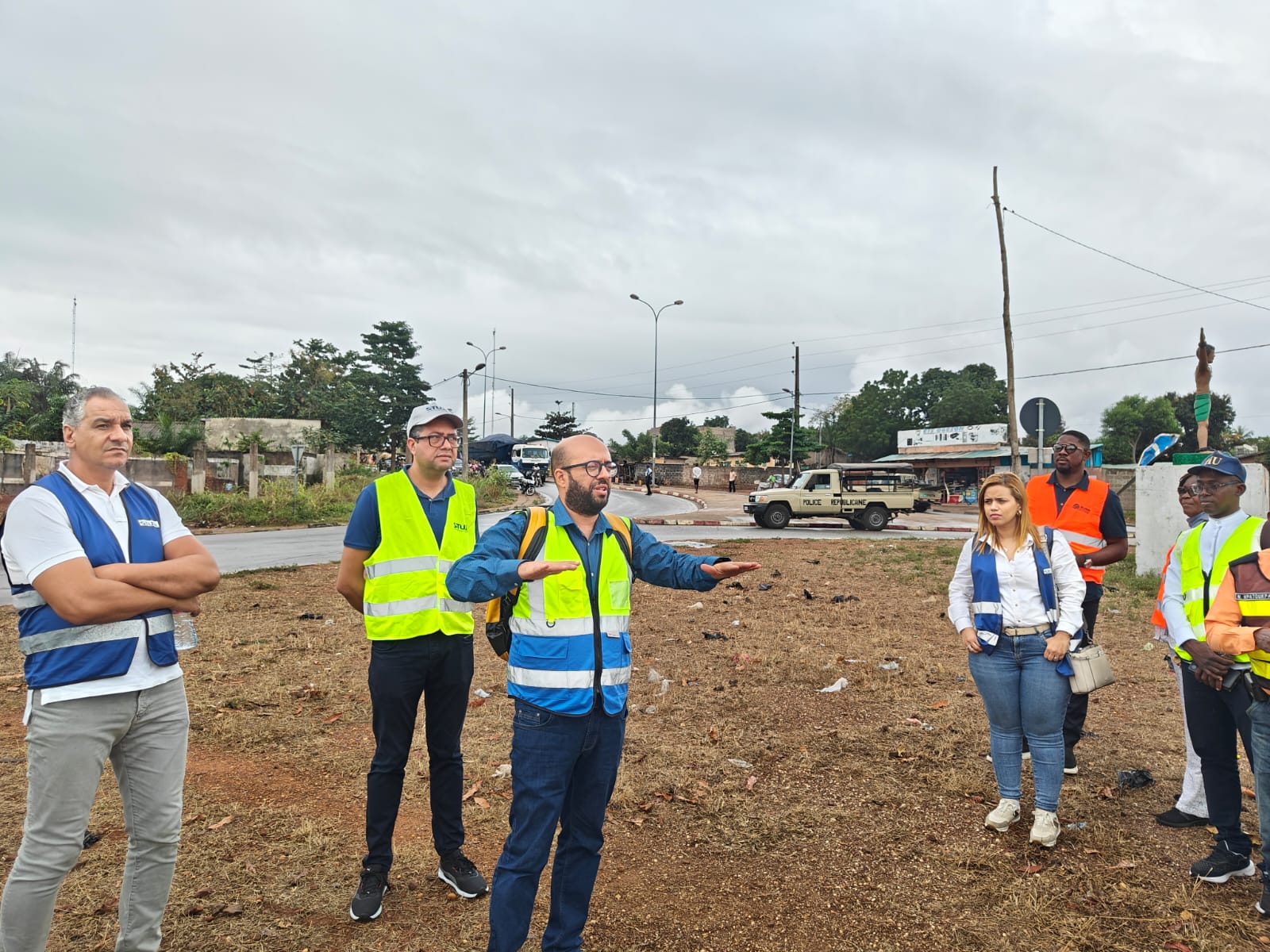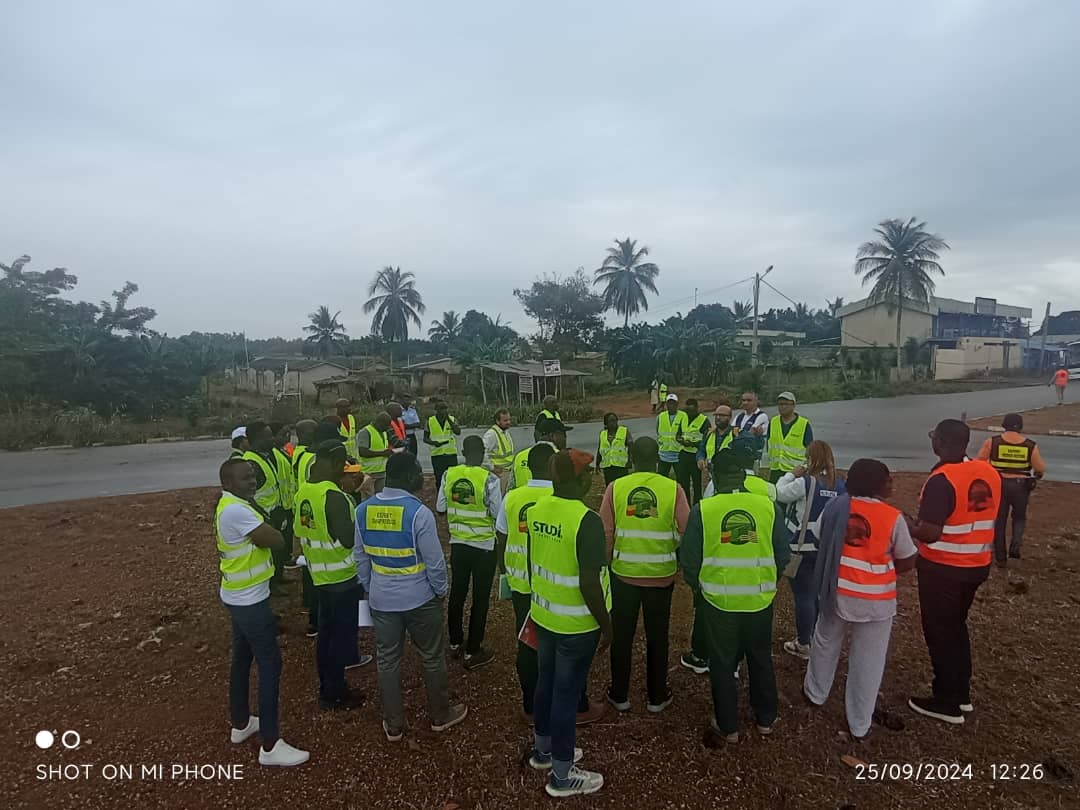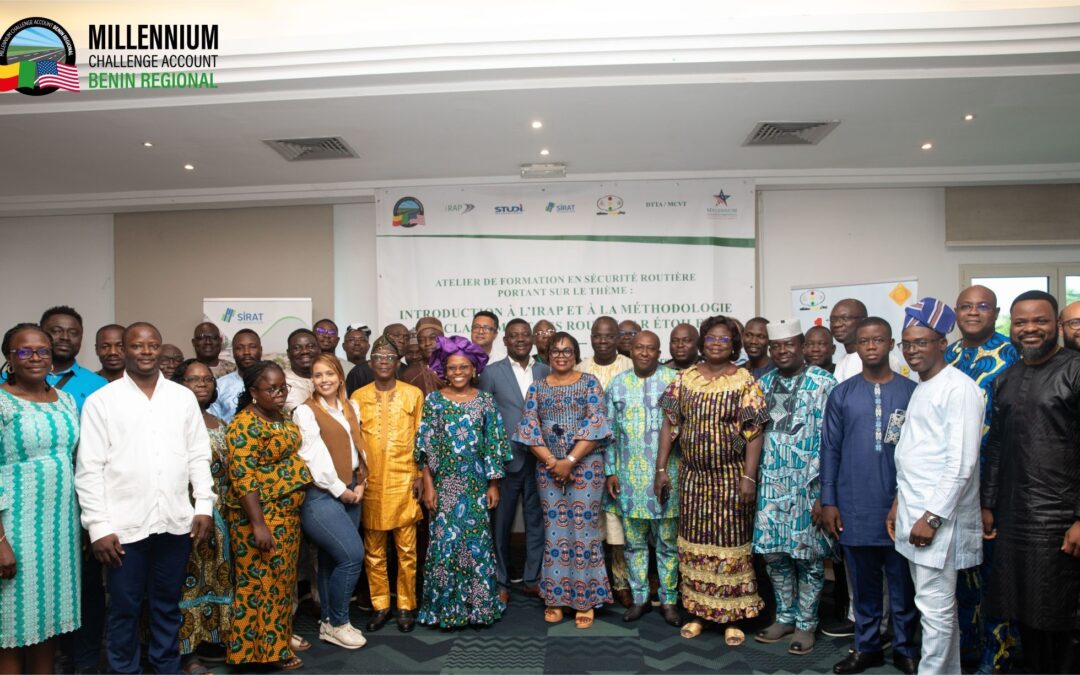Image credit: Event Photographer – MCA-Benin
An iRAP Workshop supported by the Millennium Challenge Corporation (MCC), concluded recently in Cotonou, Benin. The workshop aimed to build local capacity within the Government of Benin and optimize road safety in the country’s infrastructure investments.
The USD$406 million MCC Benin Regional Transport Compact seeks to reduce poverty and foster inclusive, sustainable economic growth by strengthening regional trade through the rehabilitation of a major trade corridor in the West Africa region.
Plans are underway to upgrade and widen the road between Bohicon and Dassa-Zoumè, Benin. Strengthening this trade corridor will enhance the flow of goods from the Port of Cotonou across West Africa , reaching additional markets in the region .
The five-day workshop, held from September 23 to 27, 2024, was led by iRAP Senior Engineer Morgan Fletcher, Road Safety Auditor and iRAP Accredited Practitioner Ahmed Ksentini, and iRAP Accredited Practitioner Lowan Bonou. It equipped 21 participants from Beninese organizations including the Directorate of Land and Air Transport (DTTA), the National Road Safety Centre (CNSR), the Departmental Directorates of Living Environment and Transport of the Littoral and Atlantic (DDCVT) and the Road Infrastructure and Land Use Planning Company (SIRAT) with knowledge and skills in the iRAP methodology to identify and reduce infrastructure crash risk.
The comprehensive curriculum covered crucial aspects of road safety, including crash data analysis, the Safe System approach, risk mapping, and safety inspections and audits. A highlight was a full-day site visit on September 25, where participants recorded a 50km section around Cotonou using a GoPro camera, gaining hands-on experience with iRAP’s data collection methodology and analysis.
The group also conducted investigations of high-risk configurations at a roundabout and a T-junction, as well as a village crossing. These practical demonstrations sparked engaging discussions and equipped the local engineers with actionable strategies to improve road safety across Benin.
iRAP Senior Engineer Morgan Fletcher stated, “The iRAP-MCC partnership is providing exciting opportunities for safer roads in Benin and the professional development of local engineers. This collaboration between local and international partners represents a pivotal step towards reducing the burden of road trauma in the country.”
Vihotogbé Roméo MICHAI, Roads Infrastructure Director at MCA-Benin Regional, added, “This workshop marks a significant milestone in our efforts to enhance road safety in Benin. By integrating iRAP’s proven methodologies with our local expertise, we’re not just improving our roads – we’re saving lives and fostering economic growth.”
The workshop concluded with sessions on data analysis using the VIDA demonstrator and the creation of Star Rating maps, followed by a formal evaluation and certificate distribution ceremony.
This training is part of the support programme partnership between iRAP and the MCC from 2022-2026, aimed at stimulating safer roads progress in low- and middle-income countries. The multi-year partnership provides programme-level support, iRAP assessments, innovation pilots, and local capacity building to identify high-risk locations and develop mitigation plans for MCC’s investments. Similar workshops are also underway in Malawi and Mozambique.
The Millennium Challenge Corporation (MCC) is an innovative and independent U.S. foreign assistance agency leading the fight against global poverty by focusing on economic growth, strengthening institutions, good policies, country ownership, and results.
According to iRAP’s Safety Insights Explorer, achieving UN Target 4 for greater than 75% of travel on 3-star or better roads for all road users in Benin by 2030 stands to save an estimated 339,125 lives and serious injuries over the 20-year life of road treatments with an economic benefit of USD$373.2 million – over $15 for every $1 spent.
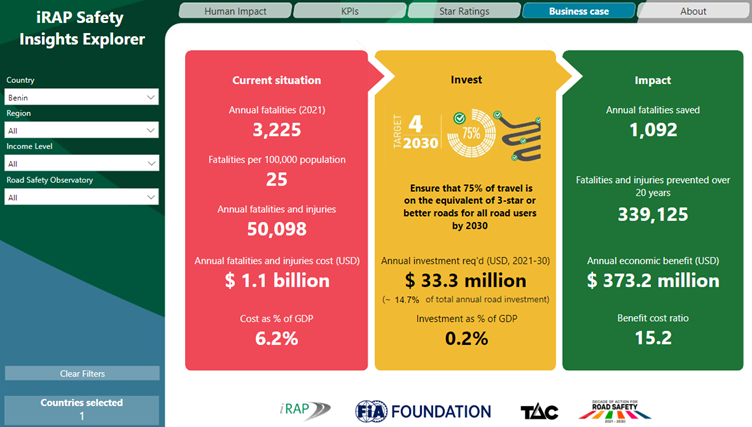
Photos from the training (Image credits below: Morgan Fletcher (iRAP Senior Engineer) and Lowan Bonou (iRAP Accredited Practitioner)).
